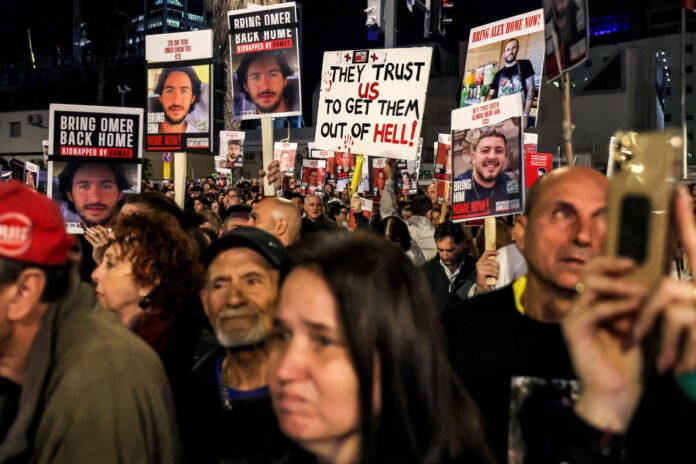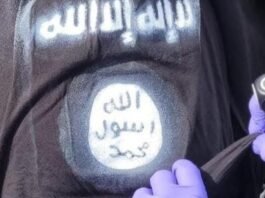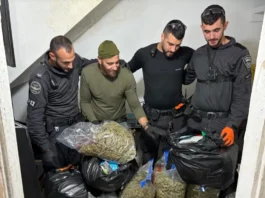
|
Getting your Trinity Audio player ready...
|
Psychological and Sexual Abuse, Drugging Unfold as Hostages Share Their Traumatic Stories
Tel Aviv, Israel: In the wake of the shocking October 7 attack by Hamas on Israel, survivors have begun to recount the horrifying details of their captivity, revealing a disturbing narrative of psychological and sexual abuse, along with the use of drugs to keep hostages docile.
Renana Eitan, the director of the psychiatric division at the Tel Aviv Sourasky Medical Center-Ichilov, expressed her disbelief at the severity of trauma endured by the hostages.
“I’ve never seen anything like that in 20 years of treating trauma victims. The physical, sexual, mental, psychological abuse of these hostages who came back is just terrible. We have to rewrite the textbook,” she stated.
Hamas’s orchestrated assault saw around 3,000 terrorists infiltrate Israel from the Gaza Strip, leaving destruction in their wake, killing over 1,200 people, and abducting approximately 240 hostages of all ages.
A temporary truce in late November resulted in the release of 105 hostages, mostly women, children, and Thai nationals, but 138 individuals, including 18 believed to be dead, remain captive in Gaza.
Drugging and Psychological Torment
The survivors, now under the care of medical professionals at Ichilov Hospital, have shared distressing accounts of being drugged during captivity.
Benzodiazepines, a class of depressants with sedative effects, including drugs like Valium, were reportedly used to keep hostages, especially children, subdued.
Eitan highlighted the intentional drugging, stating, “They wanted to control the kids, and sometimes it’s difficult to control young children. They know that if they drug them, they will be quiet.”
The shocking revelation also includes the administration of powerful drugs like ketamine to children for weeks, a practice deemed “unbelievable” by medical experts.
Survivors reported experiencing dissociative states, hallucinations, and even self-harm during their captivity.
Psychological Warfare and Deception
The psychological torment inflicted on hostages extended beyond physical boundaries. Some were falsely informed of the death of loved ones, while children were separated from their families and subjected to viewing brutal videos.
One patient revealed being held in total darkness for more than four days, resulting in psychosis and hallucinations.
The trauma is not limited to the physical realm, as survivors continue to struggle with dissociative states.
Renana Eitan emphasized the need for a dedicated PTSD treatment center, considering the staggering mental health toll, with an estimated 5% of Israel’s population, around 400,000 people, expected to suffer from PTSD symptoms.
The Dilemma for Medical Professionals
Medical professionals face a challenging dilemma as they balance the urgency of acquiring information about the condition of hostages with the best practices for debriefing survivors.
While immediate debriefing is typically avoided, the need for crucial information complicates the standard approach.
Voices of Resilience Amidst Horror
Survivor Tomer Zadik, who has been receiving treatment since being shot during the October 7 attack, described the atrocities he witnessed at the Supernova music festival.
Despite enduring nightmares and the attackers’ attempt to mentally break the nation, Zadik expressed resilience, stating, “They wanted to break us, not only physically. They wanted to mentally break the whole nation of Israel. But we won’t break.”
As Israel grapples with the aftermath of this unprecedented attack, the stories emerging from survivors shed light on the deep scars left by the brutality of Hamas.
The nation faces the daunting task of healing not only physical wounds but also the profound psychological trauma inflicted upon those who endured captivity during one of the darkest chapters in Israel’s recent history.
This article was created using automation technology and was thoroughly edited and fact-checked by one of our editorial staff members


